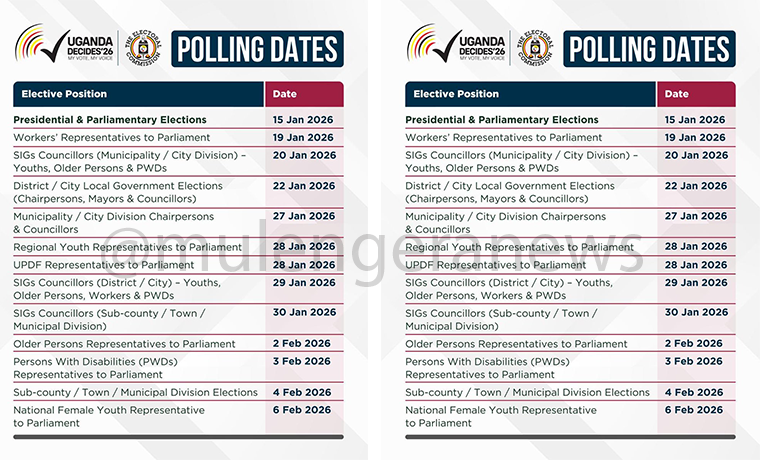The very surprising conspiracy of silence and state indifference that led to Red Pepper remaining closed for slightly more than two months negatively impacted on Pepper Publications Company besides ruining lives of hundreds of young people that depended on it for a livelihood. Famously credited for its ruthless revolutionary approach to journalism, Red Pepper had been closed in the afternoon of Tuesday 21st November 2017. The military and police since that time besieged its head offices in Namanve, along Kampala-Jinja highway. Whereas the directors and senior managers, that technically remain accused of publishing treasonous stuff and spent close to month in jail, are finally out a lot remains unresolved. For instance the staff phones that were confiscated from all workers that were found on the premises on the siege day remain unsurrendered. The civil society and other governance groups, famous for speaking out in situations of that nature, have conspicuously been silent. And perhaps not feeling much pressured, the government equally acted indifferently until last Tuesday when the Directors registered a major breakthrough in a meeting with the President. The solidarity chorusing we used to hear, and Red Pepper frequently reported about, calling for the re-opening of CBS (2009/2011 it was closed for 13 months) was never heard in the case of the Red Pepper. It’s indeed difficult to fathom the indifference with which the public, clergy, legislature, civil society groups and everybody else responded to the Red Pepper situation.
COUNTING THE COST
Today, more than 60 days (basically two months) since the people’s tabloid was closed, conservative estimates are putting the cost so far at Shs3bn. This is in terms of revenues lost in both advertising and copy sales on the street. This is how it works: you have a lot of revenue in corporate advertisement mostly through agencies and PR firms. There is much more that comes in daily from selling advertising space to government ministries and agencies (MDAs). Knowledgeable sources close to the company financial operations have disclosed to this news website that in a bad month, the Red Pepper’s revenue averages to around Shs1.9bn. This is the combination of both copy sales and selling advertising space. This clearly puts the cost in terms of missed revenue for the last 60 days at Shs3bn. Now this isn’t money just for Mr. Richard Tusiime (the CEO) to eat but it’s monthly shared with slightly over 4,000 people who directly and indirectly depend on Red Pepper for income to make ends meet. This includes the 306 salaried employees the company had at the time of the ill-timed closure and the 3,700 vendors who sell the newspapers on the streets of Kampala and other major towns. It’s true they survive not only on Red Pepper but on other newspapers as well. But here is the reason why the Red Pepper closure hit them hardest. Each Red Pepper copy they sell at Shs2500/, the company pays them an instant commission of Shs300 compared to the less than Shs200/ the Red Pepper competitors pay. The same applies for other Pepper Publication titles namely Kamunye, Entatsi and Hello. Still on these vernacular papers, the Red Pepper commission is higher than what the competition pays the vendors. This partly explains why vendors always flag Red Pepper to motorists in the traffic jams. The reason is simple; you earn much more per additional copy you sell compared to the competition. “It’s the Red Pepper which was forcing them to pay us something decent. I’m sure without the Red Pepper competition, the so-called mainstream newspapers would be paying us much less commission because those guys are complacent. They mostly rely on subscriptions by government offices and NGOs,” said one of the newspaper agents sounding very nostalgic about the Red Pepper closure. Now apart from the street vendors, who deliver the papers to wherever the customer is, you have another category called agents. These are the guys the company’s circulation department deals with more directly and they are responsible for the different suburbs or geographical areas in which the newspaper market has been zoned. They actually supervise the vendors who are more decentralized and deal with the buyers more closely. It’s partly through them that the industry gets feedback from the market and accordingly improve to meet readers’ expectations. In total, the whole newspaper market in Uganda is segmented to have 105 agents mostly based in regions and major towns upcountry. All these partake on the Shs1.9bn the Red Pepper averagely makes per month. You also have government which, by law, is entitled to 18% of whatever revenue the company makes in just VAT alone yet there are other taxes. In absolute terms, from the Shs1.9bn revenue per month, government would be entitled to roughly Shs360m. When you consider the two months during which the company was been closed, government has clearly lost Shs720m. Ofcourse government won’t collapse simply because of this Shs720m revenue shortfall but still getting that money would only have consolidated (rather than weaken) service delivery. These close to 4,000 people directly and indirectly depending on Red Pepper aren’t alone. Behind them are many more other people that depend on them to live to the next day. You also have other entities (e.g. banks) doing business with Red Pepper and they too take something off the Shs1.9bn the company makes monthly. The good thing, finally, is that the siege is over and the very entertaining tabloid is just hours away from returning to newsstands. For comments on this and other Mulengera news stories, call/text us on 0703164755.
[
































